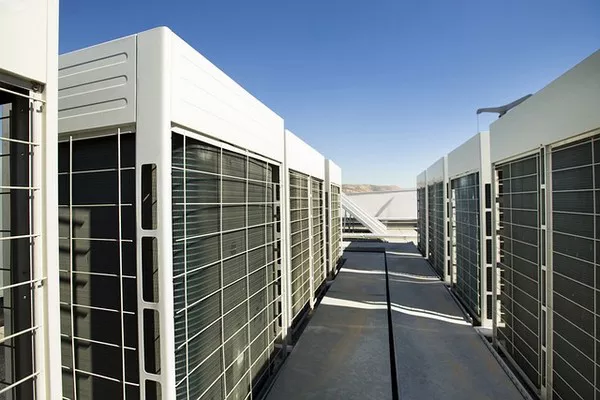Commercial refrigeration is an integral aspect of modern businesses, playing a pivotal role in preserving and ensuring the quality of perishable goods and products. It is a sophisticated technology that regulates temperature and humidity, creating controlled environments to keep items fresh, safe, and market-ready. In this article, we explore the significance of commercial refrigeration, its various applications, and the technologies that enable businesses to maintain the cold chain efficiently.
Understanding Commercial Refrigeration
Commercial refrigeration refers to the process of cooling, preserving, and storing perishable items on a larger scale, typically in commercial establishments such as restaurants, supermarkets, food processing plants, pharmaceutical industries, and other retail outlets. Unlike domestic refrigeration, which focuses on individual households, commercial refrigeration addresses the unique requirements of businesses dealing with large quantities of perishable goods.
The Importance of Commercial Refrigeration
The significance of commercial refrigeration lies in its ability to extend the shelf life of products, prevent food spoilage, and ensure the safety of consumers. It helps businesses to maintain a steady supply of fresh items and minimizes food wastage, contributing to sustainable practices and reduced environmental impact. Additionally, commercial refrigeration enables industries to adhere to regulatory standards and hygiene guidelines, ensuring compliance with health and safety regulations.
Applications of Commercial Refrigeration
1. Food Industry:
One of the primary applications of commercial refrigeration is in the food industry. Restaurants, hotels, catering services, and food retailers rely on refrigeration units to store perishable ingredients, prepared meals, and ready-to-eat products. The cold chain ensures that the food remains safe and appetizing from production to consumption, preventing bacterial growth and contamination.
2. Supermarkets and Grocery Stores:
Large supermarket chains and grocery stores extensively employ commercial refrigeration for the storage of fruits, vegetables, dairy products, meats, and frozen goods. These refrigeration systems cater to high volume demands and allow for easy access to chilled products for consumers.
3. Pharmaceutical Industry:
The pharmaceutical sector heavily relies on commercial refrigeration to preserve temperature-sensitive medications and vaccines. Precise temperature control is crucial to maintain the potency and efficacy of pharmaceutical products, preventing any compromise in patient safety.
4. Cold Storage and Warehouses:
Commercial refrigeration plays a significant role in cold storage facilities and warehouses that store goods for extended periods. These facilities serve as distribution centers for various industries, including agriculture, food processing, and pharmaceuticals.
Types of Commercial Refrigeration Systems
1. Walk-In Coolers and Freezers: These are large, walk-in units designed to store a vast quantity of perishable goods. Walk-in coolers maintain temperatures above freezing, while walk-in freezers maintain sub-zero temperatures.
2. Display Cases: Display cases are widely used in supermarkets and retail outlets to showcase products, such as beverages, dairy items, and frozen foods, to attract customers while keeping the products at the desired temperature.
3. Refrigerated Vending Machines: These machines offer a convenient way to sell chilled products such as beverages, snacks, and desserts while ensuring that the items remain fresh and safe.
4. Blast Chillers and Freezers: Blast chillers and freezers rapidly cool or freeze hot food items, reducing the risk of bacterial growth and maintaining food quality.
5. Refrigerated Transport: Commercial refrigeration extends beyond fixed locations, with refrigerated trucks and containers used to transport temperature-sensitive goods over long distances.
Energy Efficiency in Commercial Refrigeration
As the demand for commercial refrigeration rises, so does the importance of energy efficiency. Energy-efficient refrigeration systems not only reduce operating costs for businesses but also contribute to environmental sustainability. Several advancements have been made to enhance energy efficiency, including:
1. LED Lighting: LED lighting has replaced traditional fluorescent lights in many refrigeration units, as they consume less energy and generate less heat.
2. Variable Speed Compressors: These compressors adjust their speed based on cooling requirements, resulting in reduced energy consumption during periods of lower demand.
3. Digital Temperature Control: Advanced digital control systems allow for precise temperature management, minimizing temperature fluctuations and energy wastage.
4. Improved Insulation: Upgraded insulation materials help retain cold air within the refrigeration units, reducing the workload on the cooling system.
Maintenance and Sustainability
Regular maintenance of commercial refrigeration systems is essential to ensure their optimal performance and longevity. Proper maintenance not only reduces the risk of breakdowns but also enhances energy efficiency, leading to cost savings in the long run. Additionally, responsible disposal and recycling of refrigeration equipment contribute to sustainability and environmental protection.
Conclusion
Commercial refrigeration serves as a cornerstone of the modern supply chain, preserving the quality and safety of perishable goods for a variety of industries. From ensuring food freshness in restaurants and supermarkets to safeguarding pharmaceutical products, commercial refrigeration is critical to meeting consumer demands while adhering to strict regulatory standards. As technology continues to advance, the focus on energy efficiency and sustainability in commercial refrigeration will further propel businesses towards environmentally responsible practices, benefitting both their bottom line and the planet.

